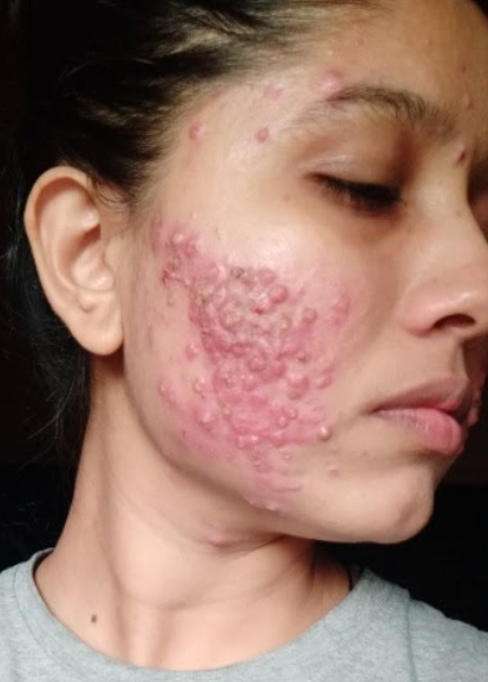Blackheads are a common skin concern that affects people of all ages, often appearing on the face, particularly the nose, forehead, and chin. These small, dark spots are a type of acne known as open comedones, which occur when hair follicles become clogged with oil, dead skin cells, and bacteria. Understanding the causes of blackheads and exploring effective treatments can help individuals manage and reduce their occurrence.
Causes of Blackheads
- Excess Oil Production: The sebaceous glands in our skin produce sebum, an oily substance that helps keep skin moisturized. However, overactive sebaceous glands can lead to excess oil on the skin’s surface. This excess oil can mix with dead skin cells and clog pores, resulting in blackheads.
- Hormonal Changes: Hormonal fluctuations, particularly during puberty, menstruation, or pregnancy, can trigger increased oil production. Androgens, the male hormones present in both men and women, play a significant role in stimulating sebaceous glands, making hormonal changes a common cause of blackheads.
- Poor Skin Care: Inadequate cleansing can contribute to the buildup of dirt, oil, and dead skin cells, leading to clogged pores. Conversely, using harsh products can strip the skin of natural oils, causing it to overproduce sebum in compensation.
- Diet: Emerging research suggests that certain dietary choices may influence the development of acne, including blackheads. High-glycemic-index foods, such as sugary snacks and refined carbohydrates, may exacerbate oil production and acne formation.
- Genetics: Family history can also play a role in the propensity to develop blackheads. If parents had issues with acne, their children may be more likely to experience similar skin concerns.
Treatments for Blackheads
Addressing blackheads often requires a combination of good skincare practices and targeted treatments. Here are some effective strategies:
- Cleansing: Regular cleansing with a gentle cleanser can help remove excess oil and impurities from the skin. Look for products containing salicylic acid, which penetrates pores and helps dissolve the debris causing blackheads.
- Exfoliation: Exfoliating the skin 1-2 times a week can remove dead skin cells and prevent pore clogging. Chemical exfoliants, such as alpha hydroxy acids (AHAs) and beta hydroxy acids (BHAs), are particularly effective. They help to slough off dead skin while promoting cell turnover.
- Topical Treatments: Over-the-counter products containing retinoids can be beneficial for reducing blackheads. Retinoids promote cell turnover and prevent clogged pores, making them an excellent option for acne-prone skin.
- Pore Strips: These adhesive strips can be used to temporarily remove blackheads from the surface of the skin. While they provide immediate results, they do not prevent future blackheads from forming.
- Professional Extractions: For stubborn blackheads, seeking treatment from a dermatologist or licensed esthetician can be beneficial. They can perform extractions safely and effectively, minimizing the risk of scarring or infection.
- Consistent Skin Care Routine: Establishing a consistent skincare regimen that includes cleansing, exfoliating, and moisturizing can help maintain skin health and reduce the occurrence of blackheads over time.
- Diet and Hydration: Maintaining a balanced diet rich in fruits, vegetables, and whole grains, along with proper hydration, can support overall skin health and may help reduce the frequency of blackheads.
Conclusion
Blackheads, while common and often frustrating, can be effectively managed with the right understanding and treatment strategies. By addressing the underlying causes—such as excess oil production, hormonal changes, and inadequate skincare—individuals can significantly reduce the appearance of blackheads. A consistent skincare routine, combined with targeted treatments, can help achieve clearer, healthier skin. If blackheads persist or worsen, consulting a dermatologist is advisable for personalized advice and treatment options.
